Constance Thierry
IRISA-D7, IRISA, DRUID
Estimation of the qualification and behavior of a contributor and aggregation of his answers in a crowdsourcing context
Mar 08, 2023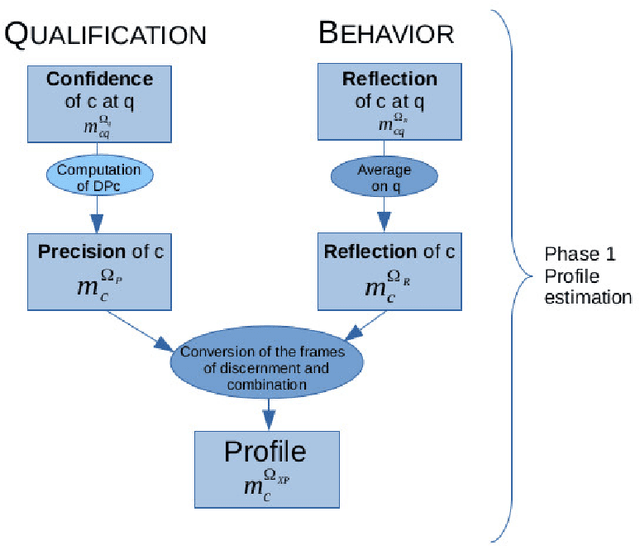
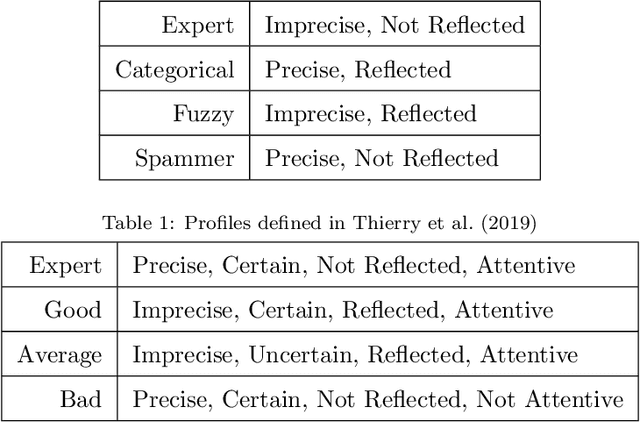
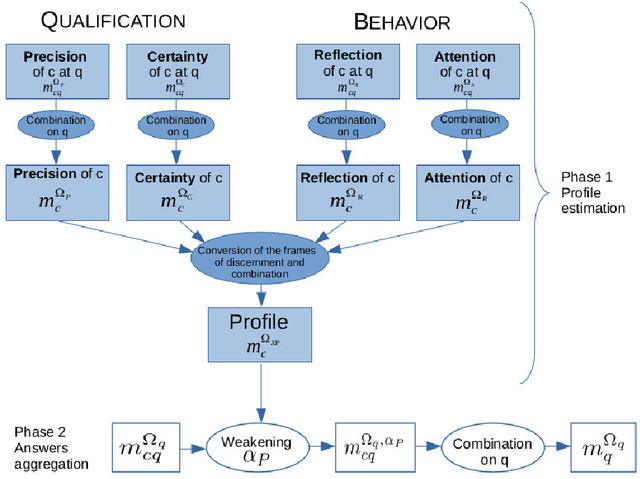
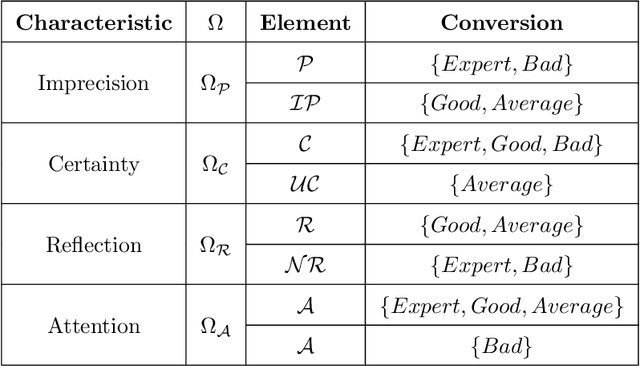
Abstract:Crowdsourcing is the outsourcing of tasks to a crowd of contributors on a dedicated platform. The crowd on these platforms is very diversified and includes various profiles of contributors which generates data of uneven quality. However, majority voting, which is the aggregating method commonly used in platforms, gives equal weight to each contribution. To overcome this problem, we propose a method, MONITOR, which estimates the contributor's profile and aggregates the collected data by taking into account their possible imperfections thanks to the theory of belief functions. To do so, MONITOR starts by estimating the profile of the contributor through his qualification for the task and his behavior.Crowdsourcing campaigns have been carried out to collect the necessary data to test MONITOR on real data in order to compare it to existing approaches. The results of the experiments show that thanks to the use of the MONITOR method, we obtain a better rate of correct answer after aggregation of the contributions compared to the majority voting. Our contributions in this article are for the first time the proposal of a model that takes into account both the qualification of the contributor and his behavior in the estimation of his profile. For the second one, the weakening and the aggregation of the answers according to the estimated profiles.
Modelisation de l'incertitude et de l'imprecision de donnees de crowdsourcing : MONITOR
Feb 26, 2020

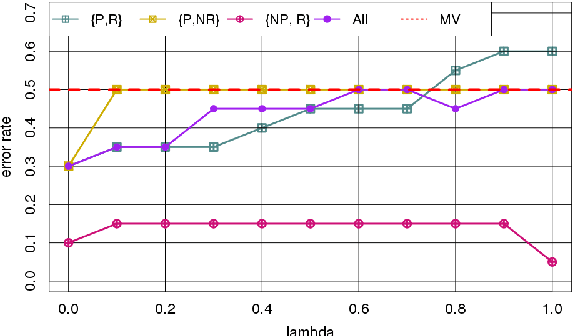
Abstract:Crowdsourcing is defined as the outsourcing of tasks to a crowd of contributors. The crowd is very diverse on these platforms and includes malicious contributors attracted by the remuneration of tasks and not conscientiously performing them. It is essential to identify these contributors in order to avoid considering their responses. As not all contributors have the same aptitude for a task, it seems appropriate to give weight to their answers according to their qualifications. This paper, published at the ICTAI 2019 conference, proposes a method, MONITOR, for estimating the profile of the contributor and aggregating the responses using belief function theory.
Contributors profile modelization in crowdsourcing platforms
Nov 19, 2018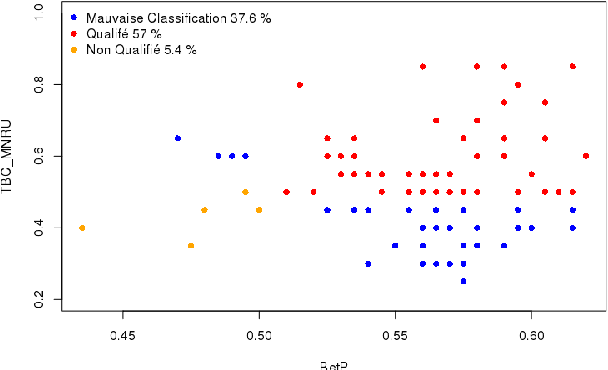
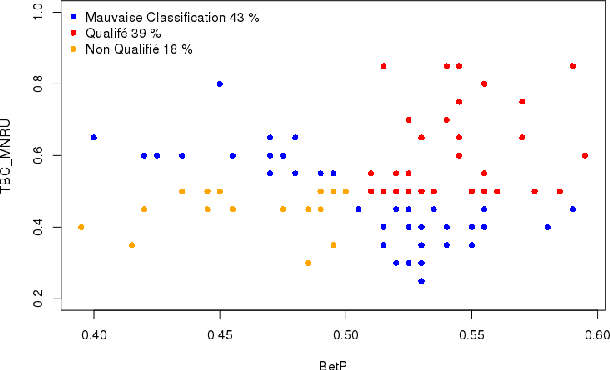
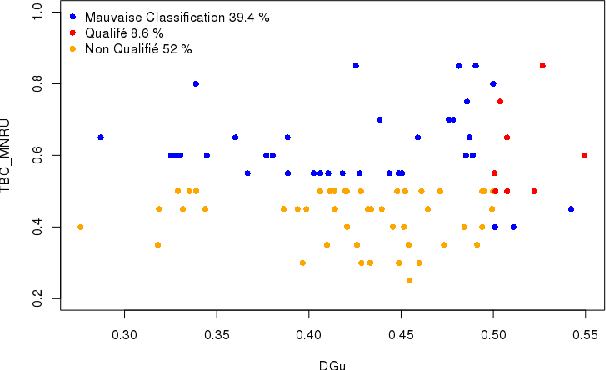
Abstract:The crowdsourcing consists in the externalisation of tasks to a crowd of people remunerated to execute this ones. The crowd, usually diversified, can include users without qualification and/or motivation for the tasks. In this paper we will introduce a new method of user expertise modelization in the crowdsourcing platforms based on the theory of belief functions in order to identify serious and qualificated users.
 Add to Chrome
Add to Chrome Add to Firefox
Add to Firefox Add to Edge
Add to Edge